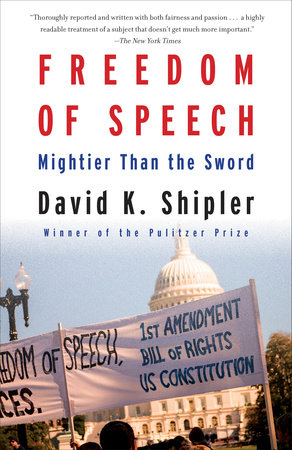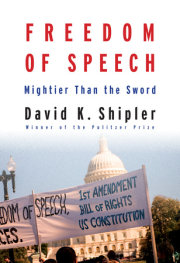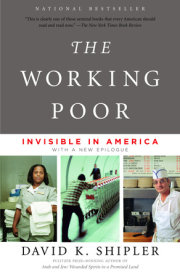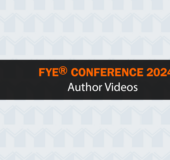7
The Cultural Limits of Bigotry “I am not racist.”
—Diane Fedele, president of a Republican women’s club in California
David Marsters, a retired police officer, was fed up with Barack Obama. “One man ruined the whole country,” Marsters declared by phone a few days after being interrogated by the Secret Service. “I voted for him the first time. He’s conned everybody in the nation that he’s gonna change this or change that.”
But the only change that Marsters saw from his rural town in Maine was a shift toward the revolting, which he watched through the peculiar lenses of Fox News, Glenn Beck, and other right-wing polemicists.
“It’s getting disgusting, the whole country,” Marsters said. “He’s given away the country—food stamps, all that. Nobody wants to work anymore. He always blames everybody else.” And Obama “was blowing smoke from marijuana” during the first presidential debate in 2012, Marsters imagined. “He was high as a kite. With Romney. That’s what I feel. I got a right to my feelings.”
Indeed he does. He also has a right to his speech, which he exercised in a galvanizing way in late August 2013. As the rest of his disgusting country was marking the fiftieth anniversary of the March on Washington and hearing again the ringing cadence of Martin Luther King Jr.’s inspiring call, “I have a dream,” a different phrase altogether came to David Marsters, and he did not keep it to himself.
Before his line is quoted, Marsters should be allowed to make his case: “I’m not prejudiced against blacks or anything. We have many black friends.” A black Baptist church was his place of worship, in the Roxbury section of Boston, before he and his wife moved to Maine. “We traveled twenty miles to go to church,” he said, and loved it, at least as a social spectacle. “The service would last four to five hours, all great people. They had a band there, jambalaya, dancing around. They knew how to live. Their kids were very well trained, sat there for four or five hours, all well dressed.”
This shield of non-racism did not protect him. It was quickly pierced by three words, which he posted on his Facebook page with a link to a Republican congressman’s call for Obama’s impeachment. “Shoot the nigger,” Marsters wrote. Imagine. While much of the country was thinking, “I have a dream,” Marsters was typing, “Shoot the nigger.”
The landscape of free speech is vast in America, but there are boundaries, often invisible to the unwitting, who trip over the unseen taboos and then fall, bewildered, into disrepute. The list of the self-wounded is long enough, and prominent enough, to suggest that despite all that the society has learned about the traditional patterns of stereotyping, there are plenty of tone-deaf Americans. They do not hear themselves. They do not recognize the old, unpleasant discords of prejudice in their remarks, their jokes, their accusations. They surely believe what they say: that they are not racist, not anti-Semitic, not biased along the lines of ethnicity or religion. Often they are sincerely stunned when their innocent words, lighthearted words, strong words, yes, but principled words of legitimate criticism, are turned around and used to brand them as bigots.
Marsters felt the repercussions immediately. He was a relative new-comer who had come just three years earlier, at the age of sixty-five, from Malden, Massachusetts, to the village of Sabattus, which straddles the Maine Turnpike south of Augusta. He noticed, with annoyance, that Sabattus residents who were not willing to serve in town offices were nonetheless “the first to bitch,” so he volunteered and was seated on the Ordinance Review Committee, the Budget Committee, and the Charter Commission.
Amid a rash of home break-ins, he made a stir by proposing a law that would have required every household to own a gun; it was voted down. He also set his sights on a run for selectman. All this made him a quasi-public figure, ripe for unwelcome press coverage, all the way from the Bangor Daily News to the New York Daily News, when his terse remedy for the Obama problem went up on Facebook.
First, the local government forced him to resign from the committees, with the town manager, Andrew Gilmore, calling his Facebook remark “deplorably hateful, dangerous, and exactly opposite of all this country and the town of Sabattus stands for.”
Then, Marsters recalled, “My police department where I live called me up and [said], Dave, come down at two o’clock. We want to talk to you about it.” When he walked into the office, in the one-story, cream-colored municipal building, he saw “a guy there with civilian clothes on. I knew he was Secret Service. I’m a retired cop, and I can smell ’em a mile away . . . He’s a young kid, fresh out of the academy, stationed up here in Maine.”
The fledgling agent was obviously interested in only one of the two components of the Facebook post—not the racist epithet, but the apparent threat. “It’s against the law to threaten the president of the United States,” Marsters acknowledged. “People took it as a threat. I talked to many people who didn’t take it as a threat,” and he said he didn’t mean it literally. He meant “do something about it. Impeach him . . . They’ve been trying to get rid of him. They’ve been talking about it for two years now.” In the immediate clarity of hindsight, he called his typed sentence a “slip of the finger.”
The agent issued Marsters the Miranda warning about his rights to silence and counsel and asked Marsters for his name, his date of birth, his children’s names and addresses, his educational background, and his military service. “Have you ever been to Washington, D.C.?” Marsters remembered being asked. “Did you ever go to any rallies for Obama?” No. “Ever go to rallies around here for Obama?” No. He took Marsters’s picture and asked for consent to search his house for weapons.
The retired cop knew the routine very well, and he gave consent, thereby waiving his Fourth Amendment right against a search without probable cause, which would have required the agent to get a warrant from a judge. Marsters told the agent up front that he had one weapon, a handgun. “I showed it to him before he searched the house,” Marsters said, and then, accompanied by local police, “he searched the house for more weapons.”
He found nothing else and left the gun. “I had a concealed weapons permit,” Marsters said. “Three days later the chief of police wrote me a letter and revoked it, said I was not of good character.”
The Secret Service agent interviewed his wife and neighbors and required Marsters to sign an affidavit stating that he had not been hospitalized for mental illness and was not taking drugs for any psychological ailment. He told Marsters that the agency would check, and “if you lied, we’ll come back to you again.”
As a former law enforcement officer, Marsters voiced no complaint. “They have to do their job, that’s how I figure,” he said. “They took it as a threat. The town manager took it as a threat, the police chief took it as a threat, the sheriff took it as a threat.” But Marsters wasn’t worried. “They can’t find a black mark against me. I never had a parking ticket, haven’t been arrested, was a cop, thirty years in the military.”
Under federal law, it takes less to activate an investigation into threatening words against the president than it does, say, against your boss or your neighbor. Pure speech, even ugly speech, is protected by the First Amendment unless it crosses limits into criminal conspiracy or incitement. So police departments usually don’t act on stated threats alone without accompanying action that rises to the level of harassment or imminent danger.
The president, however, enjoys special protection under the statute, which states, “Whoever knowingly and willfully [makes] any threat to take the life of, to kidnap, or to inflict bodily harm upon the President of the United States . . . shall be fined under this title or imprisoned not more than five years, or both.”
But what constitutes a threat? The Secret Service uses a three-pronged test before bringing charges: Agents must determine that the person in question actually made the statement, did so “knowingly and willfully,” and meant it as a true threat. No proof is needed that the individual intended to carry it out.
“The Secret Service is interested in legitimate information relating to threats, plans or attempts by individuals, groups or organizations to harm Secret Service protectees,” the agency says on its website. “However, the agency does not desire or solicit information pertaining to individuals or groups expressing legitimate criticism of, or political opposition to, the policies and decisions of the government or government officials.”
Copyright © 2015 by David K. Shipler. All rights reserved. No part of this excerpt may be reproduced or reprinted without permission in writing from the publisher.






